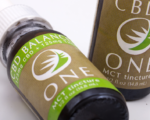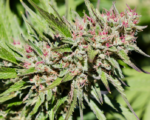Texas lawmakers reconvened in Austin on Sunday with a packed agenda and a political dilemma. Governor Greg Abbott’s special session call included a crackdown on intoxicating hemp products, but there’s one major problem: the Texas Constitution might not let them go as far as they’d like.
With 18 issues on the table and public health concerns rising, the debate is heating up fast—can lawmakers target THC-heavy hemp in full, or are they constitutionally boxed in?
The Letter of the Law vs. Legislative Intent
There’s no wiggle room in Article 3, Section 40 of the Texas Constitution. If it’s not listed in the governor’s proclamation, lawmakers can’t legislate on it during a special session. That’s not up for interpretation.
Governor Abbott’s July 9 proclamation was very specific. He authorised legislation that would:
-
Criminalise providing hemp-derived products to minors under 21
-
Regulate hemp products by limiting potency and modifying compounds
-
Set up enforcement without banning legal hemp entirely
So, yes to tighter rules. But a blanket ban on all hemp-derived THC products? That’s legally murky.

Can They Ban What They’re Meant to Regulate?
The hemp industry isn’t standing still. Retailers, producers, and attorneys are closely watching how lawmakers tread the line. Regulation might be fair game—but outright prohibition could spark lawsuits.
One lawyer specialising in Texas constitutional law summed it up bluntly: “They can restrict it. They can’t outlaw it. Not unless the governor says so.”
That legal reading hinges on a strict view of Abbott’s language—especially his line about “all without banning a lawful agricultural commodity.” Hemp’s legality, after all, is rooted in both federal and state law since 2019.
Even some lawmakers appear cautious. One member of the House Agriculture Committee, who asked not to be named, told Bloomberg, “We’re threading a needle here. We want tighter controls without triggering a constitutional challenge.”
Where Potency Meets Politics
Supporters of stricter controls argue that unregulated hemp-derived THC poses real risks, especially to minors. Products like Delta-8 and Delta-9 edibles have surged in popularity, often with little oversight.
Opponents—mostly from the hemp industry—say banning or even overly restricting these products could crush small businesses and sidestep scientific data.
There’s also a business angle. Texas saw nearly $9 billion in hemp product sales last year alone, according to the Texas Hemp Growers Association. That’s no small market.
But let’s get one thing straight: this is as much about public perception as it is policy.
Some lawmakers want to look tough on THC without taking the political heat of a full ban.
Others want to keep the market open while addressing the “wild west” retail scene that’s exploded across gas stations and vape shops statewide.
What’s Actually on the Table?
A working draft bill floating in the Capitol halls would limit THC per serving and per package, prohibit synthetically altered cannabinoids, and ramp up licensing.
But there’s no ban in the text—and some believe that’s intentional.
This proposal:
-
Caps total THC at 2 milligrams per serving
-
Requires QR codes for product tracking
-
Bans chemical conversion of CBD into intoxicating compounds
The hemp industry’s reaction? Mixed. Some welcome clarity. Others fear it’s a backdoor ban in disguise.
Legal Showdown Brewing?
Several cannabis attorneys have hinted that if lawmakers push beyond what’s authorised, lawsuits are inevitable. That’s not hypothetical—it’s happened before.
In 2021, Texas attempted to ban Delta-8 by executive order. That led to a flurry of legal action and an eventual court ruling allowing its sale while the challenge played out.
This time around, if lawmakers stretch the scope of the session too far, the courts could step in again. And with the language of Article 3, Section 40 being so rigid, legal scholars say the courts may not be sympathetic.
“It’s not just what you want to pass,” said one constitutional expert at UT Austin. “It’s what you’re allowed to pass. And that’s where this could all fall apart.”
Politics, Pressure, and Public Pushback
For Abbott, this issue is part of a wider campaign to clamp down on what he sees as loopholes in the drug market. But politically, it’s also a careful balancing act.
Too lenient, and he risks criticism from conservative voters and parent groups. Too aggressive, and he might anger libertarians and rural farmers who see hemp as a legitimate crop with legitimate markets.
Meanwhile, local law enforcement agencies are left with an unclear enforcement picture. Several sheriffs told reporters they’re unsure how to interpret the line between regulated and illegal under current laws.
Then there’s public sentiment. A recent University of Texas/Texas Politics Project poll found that:
| Issue | Support for Regulation | Support for Ban | Unsure |
|---|---|---|---|
| Hemp-Derived THC | 58% | 21% | 21% |
| Youth Access to THC | 83% | 10% | 7% |
That shows strong appetite for youth protections—but not necessarily for full prohibition.
The Bottom Line? Constitution May Call the Shots
Lawmakers have three weeks, tops, to sort this out. And unless Abbott updates his proclamation, their hands may be tied.
Sure, they can tighten rules. Sure, they can limit access. But ban THC-laced hemp entirely? That might have to wait for a regular session—or a much different political landscape.
The clock’s ticking in Austin. But for now, the Constitution is louder than the calls for a ban.
David Johnson is a respected writer known for his expertise in crafting compelling articles about cannabis. With a passion for exploring the intersection of cannabis, health, and wellness, he sheds light on the therapeutic properties and potential uses of this versatile plant. David’s in-depth analysis and thought-provoking commentary offer readers a deeper understanding of the evolving landscape of cannabis legislation, consumption methods, and industry trends.








